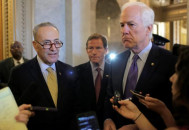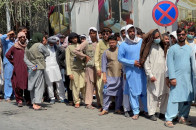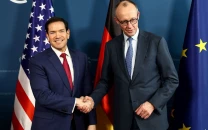Modi’s first month in office
His missteps have been few, and where he has stumbled, he has recovered quickly.

Let us observe what Modi has achieved so far through the events of the past month. And let us predict how he will move forward, based on this short period.
Broadly speaking, Modi has continued his preferred style of functioning, which is to rule through bureaucrats rather than politicians.
Senior officers, especially the secretaries who head departments, have been told to act fearlessly. They have been assured that Modi will stand behind their decisions and that they may contact him directly in case of a problem (meaning with their minister). This is the way he ran Gujarat, and his personal popularity and clear mandate mean that ministers will have to get used to this style in Delhi.
His ministers have also been educated on the other aspect of Modi’s governance style. He has asked them for a result-oriented, time-barred schedule for their first 100 days in office.
The first crisis of Modi’s term was a small and avoidable one. It came after Modi received praise from commentators for his use of Hindi over English when speaking to foreign dignitaries. This was strange because he cannot speak English well and must necessarily speak Hindi (unless he insists on speaking Gujarati). A viewing of a YouTube video of him at his patent Vibrant Gujarat meetings, where he tries to speak in English and confuses “optimistic” with “pessimistic”, will show this. He refers to himself as a pessimistic man when he actually meant the opposite.
And so, a virtue was made out of necessity. Encouraged by the response of the media, Modi instructed his officers to also use Hindi. A senior bureaucrat extended this to social media. This produced an immediate backlash from the Tamilians, including Modi’s allies, who demanded that the instruction be reversed. The fact that the Union government backed off on this issue shows us that Modi was flexible on the matter and the whole thing was papered over as a non-event.
This suppleness is a good thing and Modi will need it in future despite his thumping majority.
The second crisis came with the abduction of Indians in Iraq. Here, Modi has again done the wise thing. He has stepped back from the unnecessarily macho and nationalistic rhetoric he used in the campaign and is studying how to tackle a difficult situation.
The stock market remains pleased with the prime minister’s performance, and his policies and sentiment continue to be broadly positive, despite bad news on oil prices from Iraq.
This is because Finance Minister Arun Jaitley has been stressing what the market wants to hear. This is that the budget focus will be on fiscal consolidation and managing the deficit.
One indicator of this came when Modi implemented a railway fare hike that the Congress had held back. This passed without concerted protest from the opposition and Modi will be quick to have perceived that.
His image as a no-nonsense administrator was bolstered by his order to destroy 150,000 old files in the home ministry.
Lastly, Modi has kept tight control on release of information. The ministers and secretaries are afraid of his annoyance enough to have kept absolute silence. Party leaders have also got the message and have not been vocal.
Overall, it can be said that Modi has had an excellent first month in office. His missteps have been few, and where he has stumbled, he has recovered quickly.
However, the larger questions on his government are yet to be answered. Having told Nawaz Sharif, he would move forward on the peace process, Modi has yet to schedule the meeting between the foreign secretaries that he announced.
Most importantly: will he discontinue the UPA welfare schemes? The union budget, due in two weeks, will soon give us an answer to that.
Published in The Express Tribune, June 29th, 2014.
Like Opinion & Editorial on Facebook, follow @ETOpEd on Twitter to receive all updates on all our daily pieces.



















COMMENTS
Comments are moderated and generally will be posted if they are on-topic and not abusive.
For more information, please see our Comments FAQ